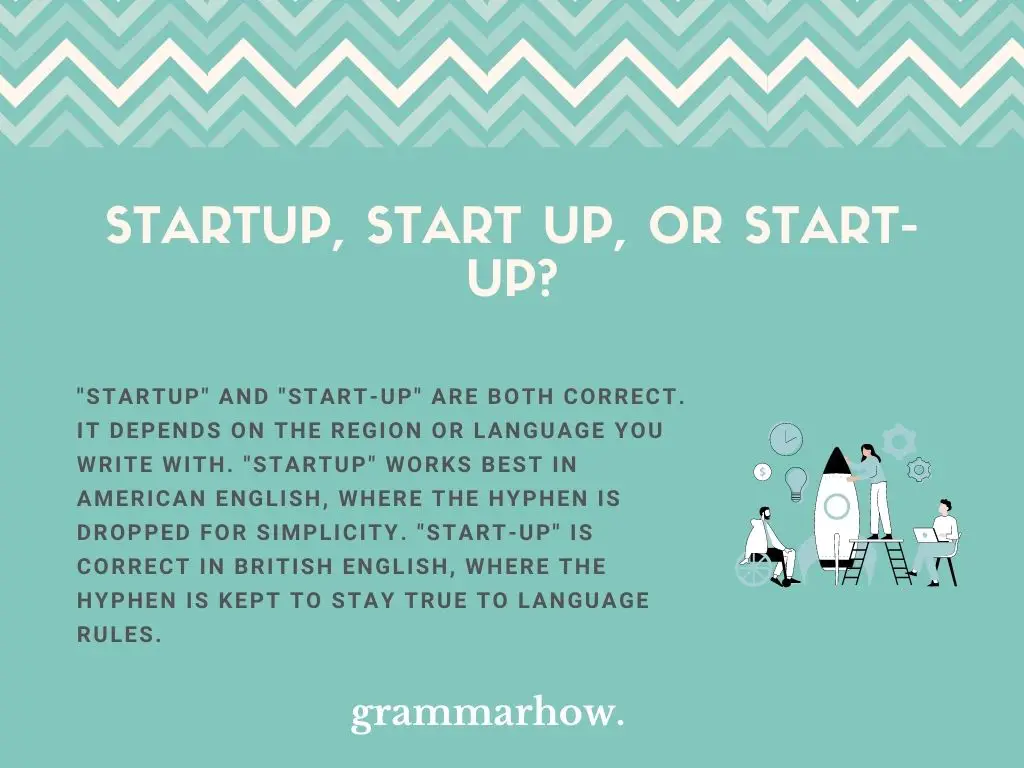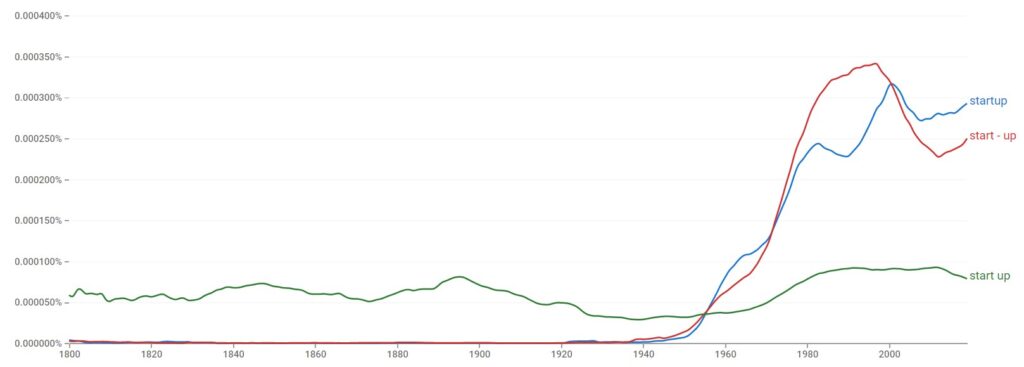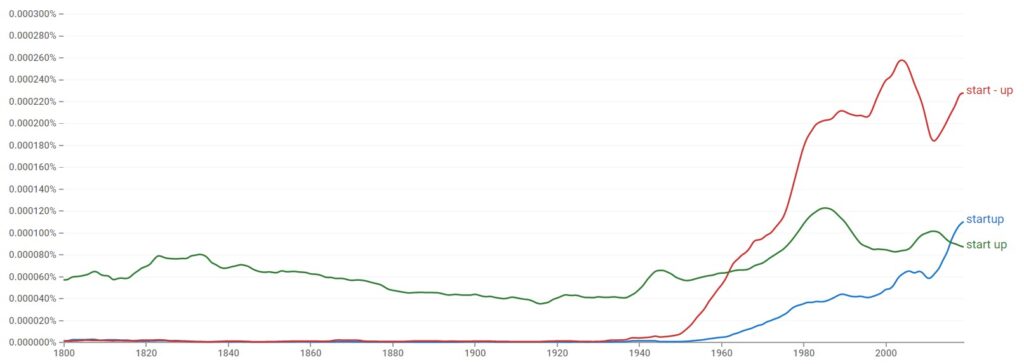“Start up” seems to have two different spelling, depending on where you look. This article will look at those two spelling variations to see whether it’s one or two words. You might also find it hyphenated in some cases.
Start up vs. Start-up vs. Startup
“Startup” and “start-up” are both correct. It depends on the region or language you write with. “Startup” works best in American English, where the hyphen is dropped for simplicity. “Start-up” is correct in British English, where the hyphen is kept to stay true to language rules.

According to Google Ngram Viewer, “startup” is the most popular choice in American English. The hyphenated form is somewhat popular, but it isn’t quite in the same regard as the one-word variation.

According to Google Ngram Viewer, “start-up” is vastly more popular in British English. The trendline is much more apparent here, showing that the one-word variation is rarely used.

We can check out definitions for both forms by looking at The Cambridge Dictionary and The Oxford Dictionary. Both dictionaries provide entries for “start-up” as a UK variation on the spelling. “Startup” is listed as a US variation.
It would help to also check out The New York Times website to see how the popularity of the phrase might look in American English.
On their website, we can see that “start-up” is mentioned 42,400 times while “startup” is mentioned 4,810 times. This observation goes against the results from the graph, but it shows that both forms are still acceptable in American English.
We can also do the same for British English by checking out The Daily Mail website.
On their website, we can see that “start-up” is mentioned 32,500 times while “startup” is mentioned 24,900 times. These numbers show that the hyphenated form is definitely better in British English.
Is “Startup” One Word?
“Startup” works as one word in American English. It’s best to remember using it in this form because the hyphen is typically dropped for the sake of ease. While both the hyphenated and unhyphenated forms are correct in American English, “startup” is your best option.
Here are some examples that should help you with it:
- Have you seen how well his startup is doing?
- I work for two different startups.
- I’ve started at least six startup companies in my time.
- You don’t understand how this startup works, and that’s okay.
Is “Start up” Two Words?
While the other two forms work, there is never a time where “start up” should be written as two words. This applies to American and British English, so make sure you avoid using it in this form. The hyphen (or grouped variation) is required to make sense of the noun.
Check out these examples to help you with it:
- Correct: My startup company is doing great! I can’t believe my luck.
- Incorrect: Your start up hasn’t taken off yet, but I still believe in you.
- Correct: I’m running a start-up, and I think it’s going to be the next big thing.
- Incorrect: His start up idea wasn’t particularly exciting! At least he tried, though.
Is “Start-up” Hyphenated?
“Start-up” should be hyphenated when writing in British English. It’s common to see it written in this way because British English writers like to stick to the original language rules where they can. Since “start” and “up” modify each other, a hyphen is required.
AP Stylebook rules teach us that hyphens are linkers between common words. When “start up” is used, we want to make sure we link them together to show how the modification is taking place. This allows us to stay true to AP Style rules.
Here are a few ways you can make sense of it:
- If you’re looking to build your start-up from the ground up, I can help you.
- I work for a start-up, which is why they’re always so slow to get everything done.
- My start-up company is doing a few things for charity that I think would interest you.
- If you’re part of a start-up, you’re entitled to a few monetary things you might not have realized.
Is “Up” Capitalized In The Word “Start-Up”?
“Start-up” is not a proper noun. Therefore, there’s no reason that either part of the hyphen should be hyphenated. You might find it useful to capitalize “start” when you write it at the start of a sentence.
You could also capitalize both parts when you write them in a title. Other than that, don’t worry about capitalization.

Martin holds a Master’s degree in Finance and International Business. He has six years of experience in professional communication with clients, executives, and colleagues. Furthermore, he has teaching experience from Aarhus University. Martin has been featured as an expert in communication and teaching on Forbes and Shopify. Read more about Martin here.
